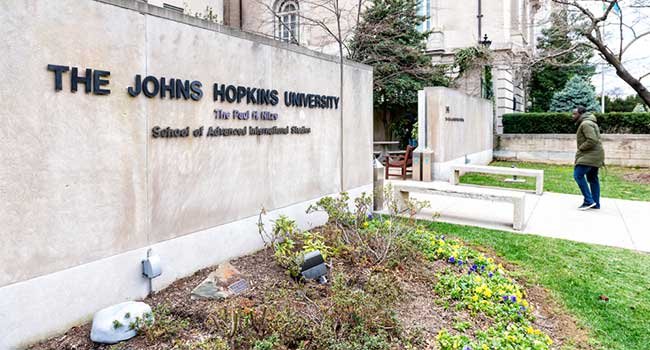
John Hopkins University Points to Baltimore Crime to Approve Police Force
John Hopkins University are escalating efforts to approve an independent police force on campus.
- By Sydny Shepard
- January 03, 2019
Students, faculty and staff of John Hopkins University received an email making the case for a police force separate from the Baltimore Police Department and notifying them that the school will be putting forth the topic of a private police force before the General Assembly yet again.
The university originally brought up the idea of a private police force for the campus in late 2018. Community leaders and lawmakers said the plan had appeared suddenly and had taken them by surprise. The measure was aborted two weeks later.
The email sent out in late December was a testament to the campus and the General Assembly that, this time, the university had done its homework. The email, which cites the relentless rise in Baltimore City’s violent crime rate as the main reason for an independent police department, includes a link to a 60-page report plus a series of exhibits and 27 appendices.
The report titled, “Interim Study on Approaches to Improving Public Safety on and around John Hopkins University Campuses,” is a comprehensive examination of the need for a separate police force, but also includes an airing of community concerns, a study of root causes of violent crime and a survey of security practices on other campuses, both in and out of state.
The report also outlined the tens of millions of dollars that the university has already put into campus security measures and citywide economic and social programs.
“The risks from criminal violence are real and must be met by us, as a community, with firm resolve,” wrote Ronald J. Daniels, the university president, and Paul B. Rothman, dean of the medical faculty and chief executive officer of Johns Hopkins Medicine, in the e-mail.
“After nearly a year of careful study and community discussions, it is our firm belief that a small, university-based, community-oriented, and research-backed police department – one that is authorized by the state and accountable to the public and to local government – is essential for Johns Hopkins,” Daniels and Rothman wrote.
In an effort to explain the need for a university task force, the report seems to indicate that the Baltimore Police Department has not done what is needed to control crime around the campuses.
The 32 percent citywide increase in violent crime is reflective of the crime trends around the university campuses – homicide, rape, aggravated assault and robbery are just a few of the crimes the university identified as the reasons why an on-campus police force is needed.
Currently, Hopkins’ 1,100 officers include 232 unarmed security officers, 63 unarmed “special police officers,” who have limited arrest powers, and another 812 unarmed contract security officers.
Citing statistics in the staffing study of the Baltimore Police Department, the Hopkins report states that city police take on average 15.9 minutes to respond to high-priority emergency calls for service. As most university security officers are now unable to intervene in crimes in progress and must call 911 for city police officers to respond instead, the status quo is “untenable and indefensible,” the report states.
“We would … continue to need to wait for the BPD to arrive to help us in an active shooter situation on or near one of our campuses, since the security personnel under our direct supervision are not equipped to use force, if necessary, to stop active shooters,” the report states. “In situations where timing matters, not having people on staff and on campus who can respond immediately could have devastating consequences.”
If approved by the legislature, sworn, uniformed officers of the Johns Hopkins Police Department would be authorized to carry guns and make arrests both on and off campus, in the areas immediately adjacent to the institutions.
About the Author
Sydny Shepard is the Executive Editor of Campus Security & Life Safety.